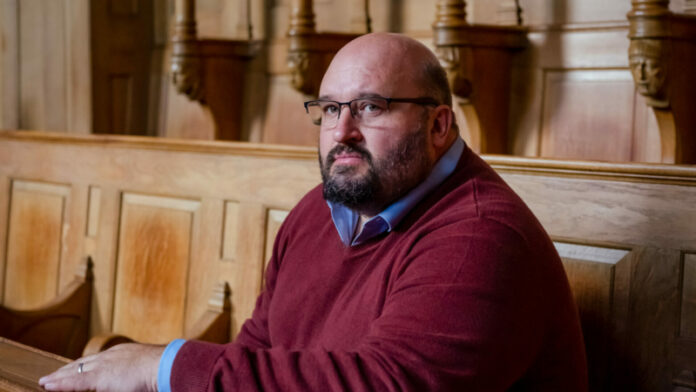
HOLDING £3.5bn in funds under management for the benefit of about 41,000 members, the Church of England Pensions Board is not huge, in global terms. But it has become an influential investor voice on a number of issues that face mining companies.
Adam Matthews, Chief Responsible Investment Officer at the board, describes its approach as active, but not activist ESG investment. It holds both debt and equity in mining companies, including some companies that have coal within their portfolios (although it does not hold pure coal plays).
“We are active on issues because it is in the long-term interests of our members,” he said in an interview. “We have a fiduciary duty to provide our members with a pension and not to invest in a way that negatively impacts the world they live in.”
Given the track record of some mining companies, especially in undeveloped countries, in damaging the environment and riding over communities’ rights, it might seem surprising that the Church of England would want to invest in the sector at all.
Matthews said many investors don’t understand the unique importance of mining in producing the resources that intersect almost every aspect of human activity, including the resources that are necessary for the world to transition to net-zero carbon emissions. Some investors want to steer away from the ESG risks in the sector. But the Church of England Pensions Board believes it should play a practical role in helping the sector to be a force for countries’ growth and economic development.
Matthews said the board sometimes takes a public position (e.g. at AGMs) to criticise company behaviour, but more often works behind the scene with company management to address issues of concern. He said there was a place for both types of engagement. One example where the board divested after failing to see positive change was from SOCO International, a company that persistently attempted to explore for oil and gas in the Virunga National Park, a UNESCO World Heritage site.
Although the performance of individual shares in the portfolio is obviously important, where the board has become more prominent is in its contribution to more fundamental change, working with other investors and the mining industry.
Dam issues
Matthews first became involved in the issue of tailings dams after the Samarco dam disaster in Brazil in 2015, when the Fundao iron ore tailings dam failed with catastrophic human and environmental consequences. Only four years later, another iron ore tailings dam in Brazil, Brumadinho, also collapsed, with even greater loss of life.
There have been over 150 tailings dams failures since 1960, it emerged at a panel discussion on the issue at Mining Indaba. Two of those have occurred recently in Southern Africa: one at Jagersfontein in the Free State in South Africa and one at Williamson in Tanzania. Matthews said the Minerals Council SA’s initiative to start mapping at-risk tailings facilities in South Africa, as a prelude to finding ways to address these risks, was to be welcomed. Hopefully it will encourage other countries to do the same.
The Church of England Pensions Board, other investors, the United Nations and the ICMM have driven the creation of the Global Industry Standard on Tailings Management and an independent body to assess conformity with that standard, the Global Tailings Management Institute.
Beyond tailings, Matthews is involved in a number of other investor-led ESG initiatives. Just a few: he chairs the Transition Pathway Initiative, which measures companies’ progress on reducing carbon emissions; chairs the Mining 2030 Investor Agenda to develop an investor agenda for a transformed mining sector; and sits on the board of the Institutional Investors Group on Climate Change.
He said ESG relates to concepts that are of material importance to investors and should be disclosed. But there are rising concerns in the investor community about the proliferation of ESG reporting requirements being laid on companies, as well as “greenwashing”.
“Fundamentally, ESG is a good way to understand a set of risks and relevant information,” he said. “Tailings dam failures are a good example of an externality where ESG principles should have applied. These failures highlight all the ESG elements: the potential for damage to the environment, to communities, and the need to be transparent about reporting on the risks and how the company is addressing them.”
What mining companies tick all the “investability” boxes for the Church of England Pensions Board?
“We want to be invested in the mining company of the future,” Matthews said. “A company that is ultimately working in harmony with its host community and where its social licence is well understood, not only by the community but at a national and international level.
“That depends on having very good community engagement and good practices on many issues, as well as real sharing of benefits with the community, rather than just extracting the resource and sending the benefits elsewhere. I think there are parts of the mining industry that are on that trajectory.”










